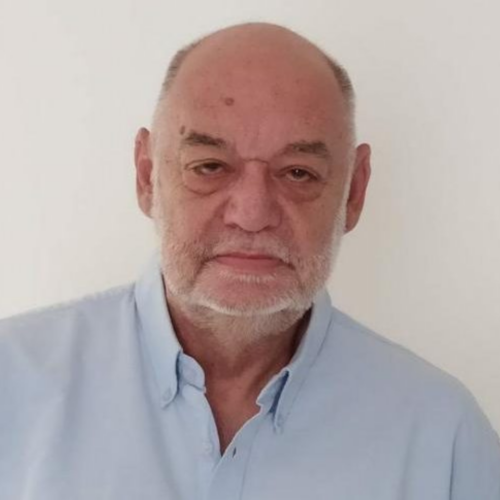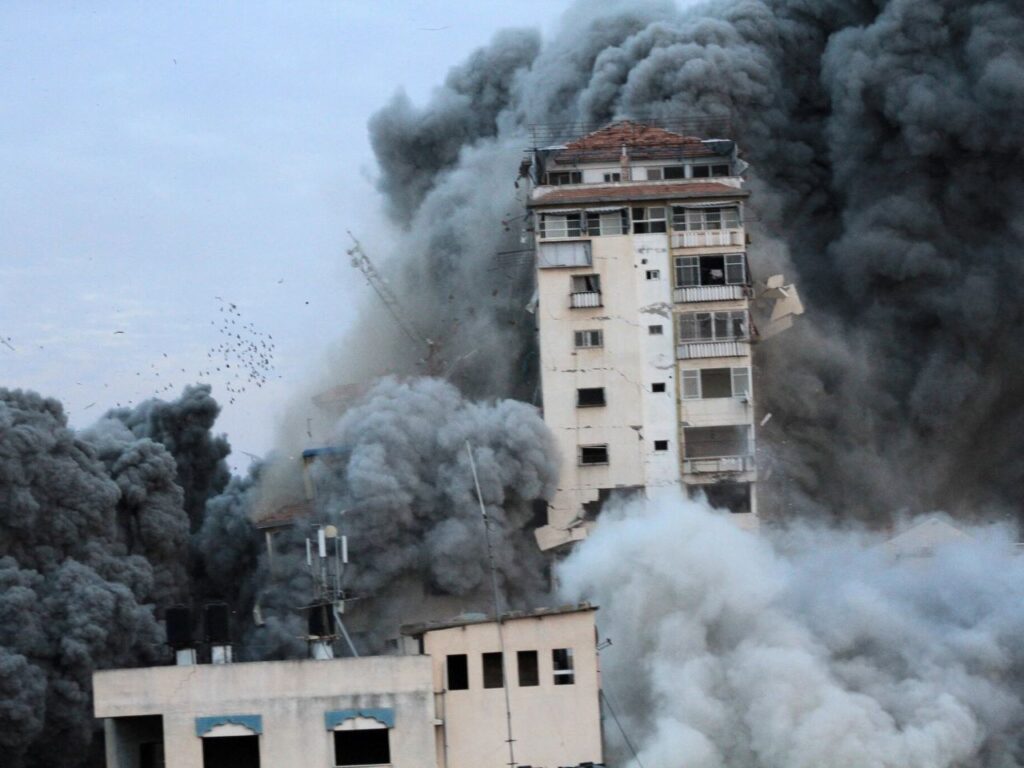Father in Israel fears Hamas kidnapped his two missing sons
My sons’ friends searched amongst the corpses lying everywhere in the combat zone and they never saw my children’s bodies. “Where do I even start,” I worried. The roads around my son’s home were closed and it was impossible to travel.
- 2 years ago
October 15, 2023

ASHKELON, Israel ꟷ Around 6:20 a.m. on Saturday, October 7, I realized Hamas launched missiles on Israel, but when I heard talk of fighting and attacks in the Kibbutz, a sense of shock settled in. Living so close to Gaza, my friends ushered me to a protective housing center in Ashkelon, about 10 miles north of the border. It felt like every second passed in slow motion, and a strange feeling overcame me. I tried to reach my children Yair and Eitan but I could not find them in the places they frequented.
That was seven days ago. All I can think about is my sons; I hope I can find them. If I hear that Hamas took them hostage, at least I know they are alive. If I lose hope, I am finished; hope is the last thing to be lost.
A desperate search for my missing sons
It felt as though the army quickly regained control of the Kibbutz after the fighting started, but I remained full of anguish. Once I began calling my sons at home and on their cell phones, I never stopped. I called over and over and over, but no one answered. When I heard the power went out in the affected areas, including internet service, it gave me a little hope. “Their phones must be down,” I thought.
At that time, the authorities hadn’t told us about the dead, only that they’d regained control. As the hours passed, I felt more and more strange, but I tried to stay focused on my boys. The moment the electricity went back on, I started calling but once again, no one answered. As a father, I have a special connection to my children, and I began to sense something was seriously wrong.
As a million thoughts swirled through my mind, I continued calling relentlessly. Finally, my oldest son Eitan’s best friend answered. “Where is Eitan,” I asked him. “We couldn’t find them,” he answered. I didn’t understand; what did he mean by “them?” I was asking about Eitan. “Who can’t you find,” I asked.
Eitan’s best friend explained that my boys had decided to spend the weekend together. They were both in the same place when the fighting started. My entire body began to tremble.
Hamas posts videos of the hostage civilians
My sons’ friends searched amongst the corpses lying everywhere in the combat zone and they never saw my children’s bodies. “Where do I even start,” I worried. The roads around my son’s home were closed and it was impossible to travel.
We continued to investigate by contacting authorities who also said my boys were not on the list of deceased. We asked if anyone of Argentinian origin was found, but they weren’t on those lists either. As the minutes passed, I felt like I was suffocating.
Next, we talked to people at the hospitals, and then to the police stations. No one knew the whereabouts of my children. My anguish skyrocketed and I had one conclusion: Hamas took them prisoner. Still, it is only a guess. Many families learned their loved ones became prisoners because they saw them in videos.
Hamas used their social media networks to show what they did to us, and to further intimidate. Neither I nor anyone else recognized my children in any of the videos. I live every second of every day with this terrible, terrible feeling. I cannot bear the desolation and the torment anymore. Day-to-day life moves so fast, and the risks of attack feel ever present. We can elaborate on nothing, and I worry all day, “Are my children dead or alive?” I just want to find them.
Overtaken by fatigue and pain, I try to push forward but I have not slept in seven days. I just wait for someone to come and tell me what happened. Now, I am preparing myself for the worst. If a terrorist organization like Hamas has my children, they will not respect the Geneva Convention, but I will still fight to get them back.
Everything is horrible and bleak: Where are my sons?
Inside the center, the arrival of food brings aroma to the air, but the stress steals all my attention. After seven uninterrupted days of searching for my children, I have no information; we simply wait for a gesture of goodwill from Hamas.
I stay close to the shelters, listening to the constant bombs, planes, explosions, and screams. I cannot think rationally now. The only things I feel are fear, anger, and despair. Just a few minutes ago, a terrible barrage of missiles flew out of Gaza. The sirens are blaring continuously and some of the missiles hit land. I wonder, “How will this end?”
We heard directly from the Israeli army that people in the North of Gaza were told to flee and nearly a million people may be displaced. We face uncertainty everywhere. Here at the center, we are mostly older people. Civilians and volunteers bring us bread, milk, eggs, and cheese.
We have orders not to go outside in the streets and we worry about imminent attacks. Many of us feel this conflict has been coming for a long time. Everything is horrible and bleak, now. We face a complex situation. The pummeling anxiety never ends as we worry about our loved ones and about war.
Even worse, my sons are nowhere to be found.
































































































































































































































































































